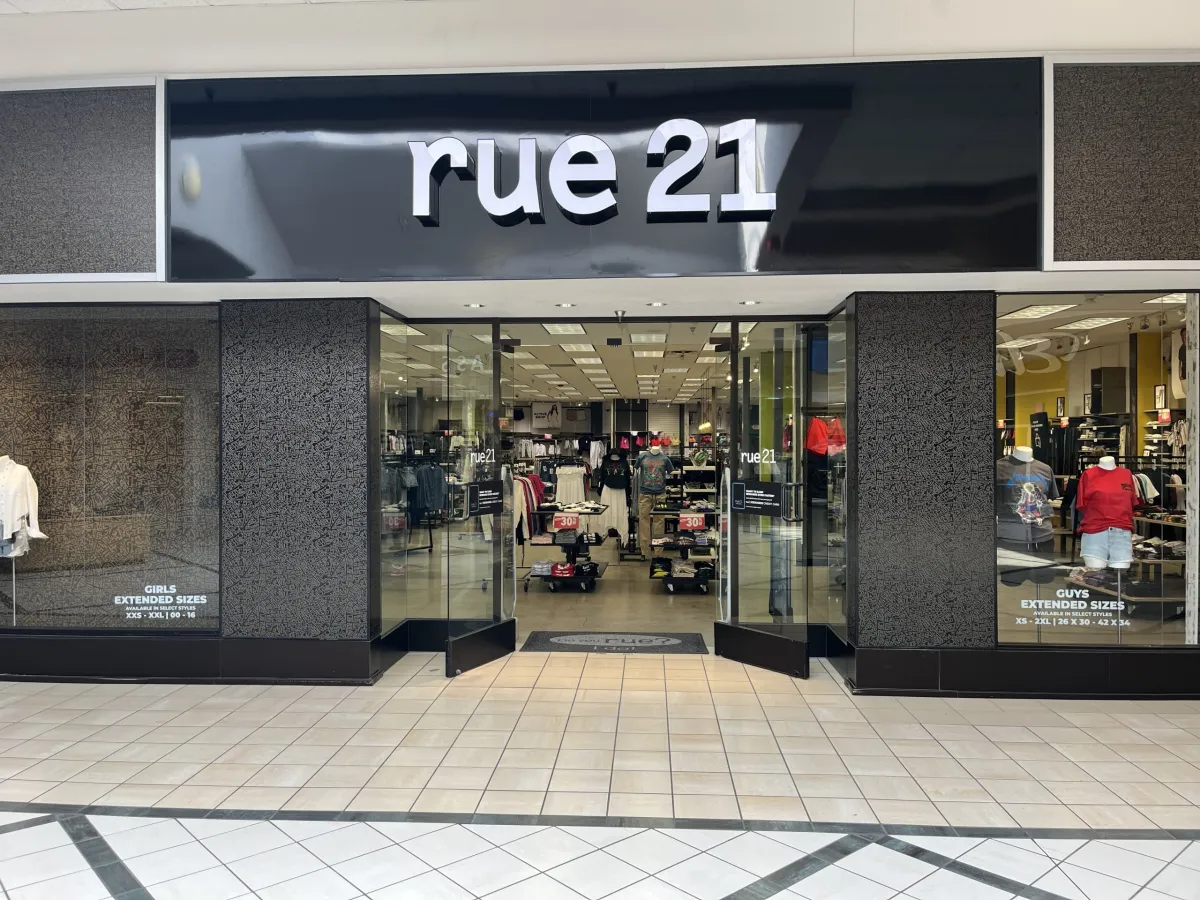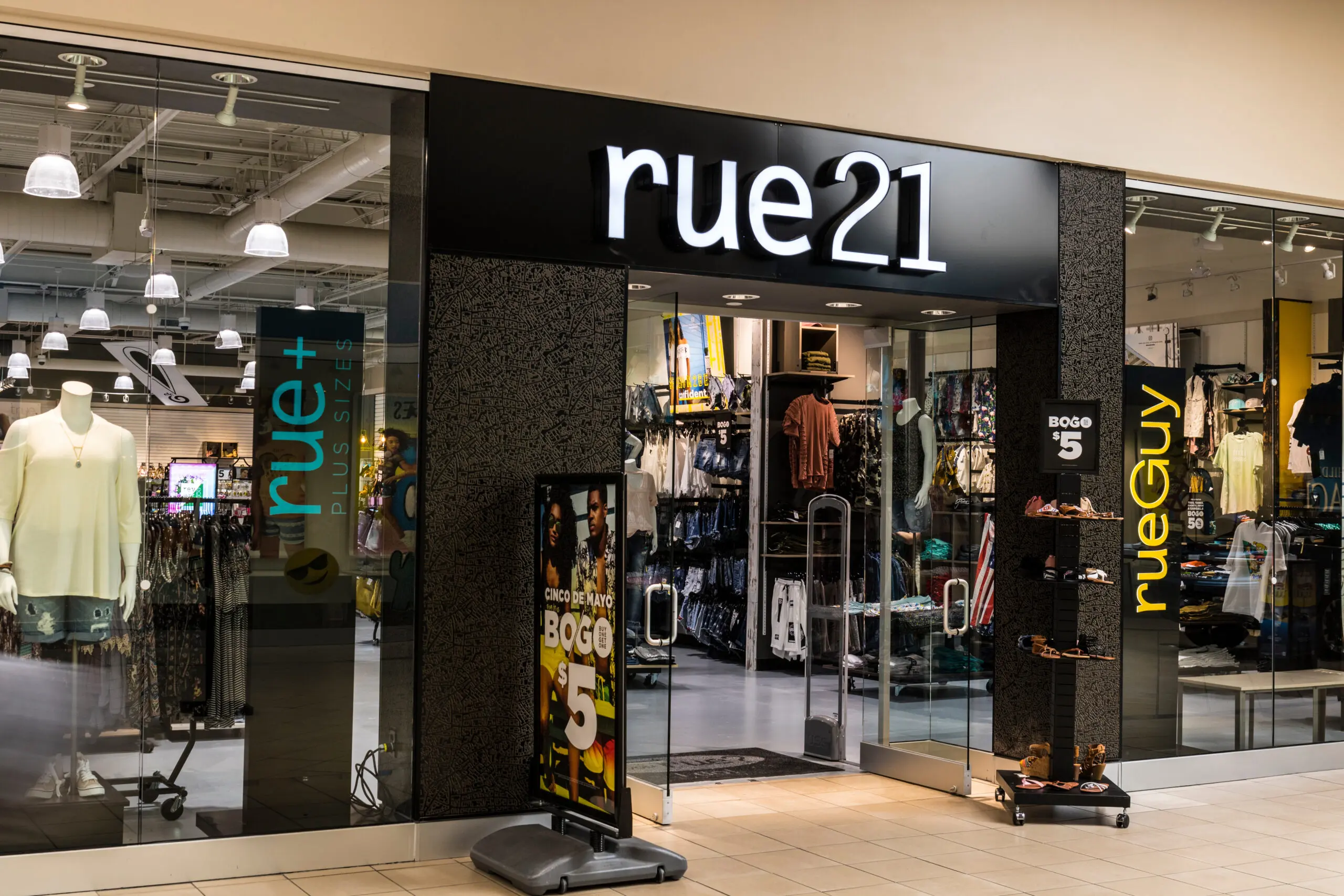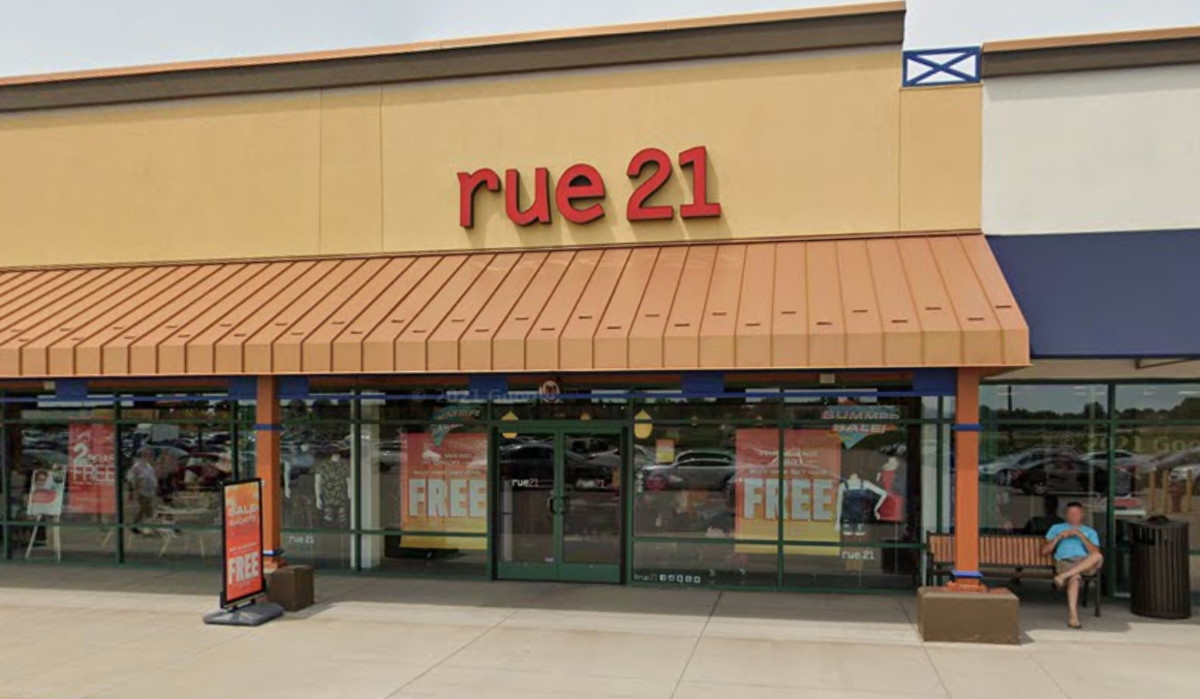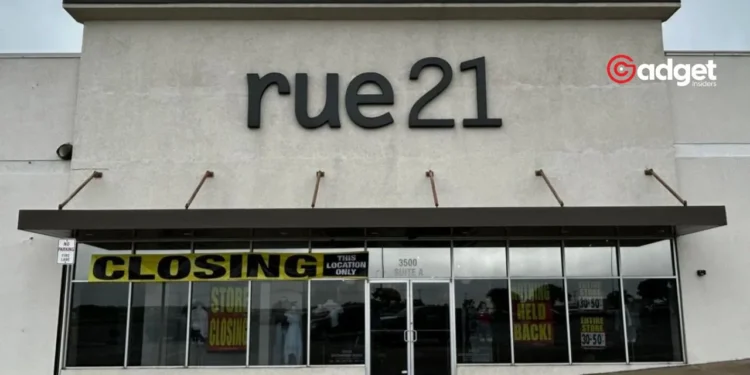In a telling sign of the challenging times that have enveloped the retail sector, Rue 21, a popular clothing retailer known for its trendy yet affordable fashion offerings for teens and tweens, has declared bankruptcy. This marks the third bankruptcy filing for the company, which is primarily held by Blue Torch Capital, and underscores the deep-rooted issues facing traditional retail, especially those outlets operating from indoor shopping malls.

Rue 21’s Struggle and Eventual Fall
Rue 21, once a vibrant name in the early 2000s, known for its graphic tees, party dresses, and an array of accessories, filed for Chapter 11 bankruptcy on May 2, in the U.S. Bankruptcy Court for the District of Delaware.
This filing comes amidst a harrowing period for the retailer, listing liabilities and assets between $100 million and $500 million. Not only does this filing lead to an unfortunate end to its operations across approximately 540 stores nationwide, but it also marks the cessation of its online presence, leaving a placeholder on its website indicating updates to come.
RUE 21 announced they have filed for bankruptcy and will be closing all their stores. Several locals work here at the warehouse in Weirton. We’re working to hear more. @WTOV9 pic.twitter.com/Ftymw5Ci6U
— Chloë Mesogitis (@ChloeWTOV9) May 6, 2024
This isn’t the first time Rue 21 has faced financial woes. The retailer previously sought protection under bankruptcy in 2002 under its then-name, Pennsylvania Fashions, reemerging a year later with a new identity. A similar pattern emerged in 2017 when Rue 21 closed 400 stores and restructured under bankruptcy protections, attempting to reinvigorate its brand with a focus on plus-sized and size-inclusive offerings.

A Reflection of Broader Retail Woes
The closure of Rue 21 is reflective of a broader trend affecting retailers that are heavily dependent on mall foot traffic. With a significant shift in consumer behavior, fewer people are visiting malls, opting instead for online shopping or discount and outlet stores that offer more competitive prices. Traditional mall stores such as Express, Forever 21, Macy’s, and Gap, once bustling with shoppers, now face similar fates with closures and bankruptcies becoming increasingly common.
Implications for the Retail Landscape
Rue 21’s downfall is not merely a standalone event but a signal of the transformative shifts in the retail industry. It highlights a crucial pivot point where consumer preferences and shopping behaviors have evolved from the traditional mall outings to more digital and value-focused shopping experiences. The continuous decline in mall foot traffic, exacerbated by the COVID-19 pandemic, has accelerated the need for retailers to rethink their strategies and adapt to a new retail paradigm that emphasizes online presence and diversity in offerings.

The broader implications of such high-profile bankruptcies are significant for the retail industry. They underscore the urgency for traditional retailers to innovate and adapt to the changing dynamics of consumer preferences and technological advancements. As more consumers prioritize convenience, variety, and value, the landscape of retail is undoubtedly set to evolve, possibly leaving behind those unable to adjust to the new norms of shopping behavior.
In conclusion, Rue 21’s closure serves as a poignant reminder of the volatile nature of the retail industry and the pressing need for adaptation and innovation. As the retail landscape continues to shift, only those brands that can effectively align with the new consumer expectations and harness the power of technology will likely survive the turbulence that has uprooted many.










